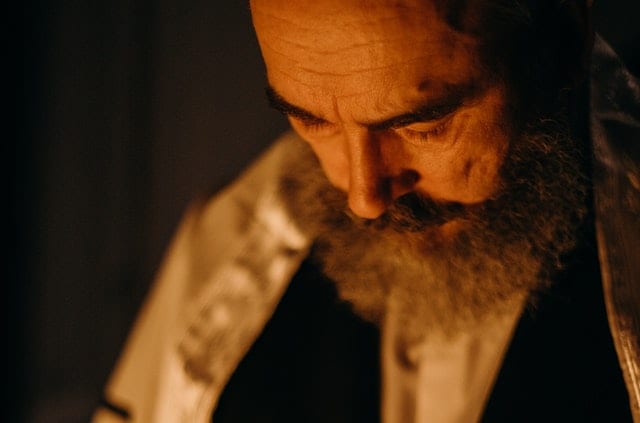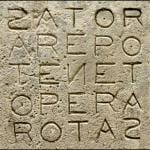
Not that there are any literal Pharisees still around these days, but if there were I would want to offer a sincere apology for the horrible ways they have been misrepresented by the Christian faith, and most notably in the Gospels [especially Matthew].
Very recently a friend of mine informed me about a book he was reading that suggested the Pharisees of the First Century were not only a lot nicer than we read about in the Gospels but were actually a lot more Christlike than we have been led to believe.
For example:
“The Pharisees believed that the idea that all of the children of Israel were to be like priests was expressed elsewhere in the Torah, for example, when the Law itself was transferred from the sphere of the priesthood to every man in Israel. Moreover, the Torah already provided ways for all Jews to lead a priestly life: the laws of kosher animals were perhaps intended originally for the priests, but were extended to the whole people; similarly the prohibition of cutting the flesh in mourning for the dead. The Pharisees believed that all Jews in their ordinary life, and not just the Temple priesthood or Jews visiting the Temple, should observe rules and rituals concerning purification.”
Many Christians might not be aware of the fact that this “Priesthood of all Believers” doctrine was advanced in the early Christian Church and is advocated by Peter, Paul – and even Jesus – throughout the New Testament.
So, the Pharisees were on the same page with the early Church when it came to this concept of “everyone a Priest of God.”
That’s not all. The Pharisees were also convinced that atonement wasn’t based on works of the Law, but on how we loved one another as we see in this quote from a Pharisee rabbi to another Pharisee after the destruction of the temple in Jerusalem:
“Be not grieved, my son. There is another way of gaining ritual atonement, even though the Temple is destroyed. We must now gain ritual atonement through deeds of loving-kindness.”
This is remarkably close to what Jesus suggests in Matthew 25 where he tells a parable of the Last Judgement where Christ separates the sheep and the goats based on whether or not they showed compassion and love to the poor, sick, outcast and imprisoned.
Another specific example of a Pharisee who sounded a lot like Jesus is
Hillel the Elder who lived around the time of Christ and said things like this:
“That which is hateful to you, do not do to your fellow. That is the whole Torah; the rest is the explanation; go and learn.”
Once again, this sounds like Jesus’s command to do unto others as you would have them do unto you. [See Matt. 7:12; Luke 6:31]
A few of Hillel the Elder’s other teachings also align pretty well with the teachings of Jesus, including:
- “Do not judge your fellow until you are in his place.”
- “Whosoever destroys one soul, it is as though he had destroyed the entire world. And whosoever saves a life, it is as though he had saved the entire world.”
- “My humiliation is my exaltation; my exaltation is my humiliation.
So, what’s going on here? Why is it that the Pharisees in the Gospels of Matthew, Mark and Luke are seen as opponents of Jesus’s teachings when the reality seems to be that they would have actually agreed with what Jesus was saying?
Well, the most likely theory is that the authors of the Gospels wrote the story of Jesus during a time when they were being opposed by the Jewish authorities [even if Jesus was not]. So, they positioned their enemies [the Pharisees and the Sadducees] as the bad guys in the story and had Jesus attack them as a way of illustrating the differences between Christianity and Judaism [even if those differences weren’t as vast at the time of Jesus’s ministry].
“It is a problem of sources. The sources mentioning the Pharisees are limited in number, have limited perspectives, and have axes to grind. Some of them were written much later than the periods they depict. Historians therefore dispute how the evidence ought to be prioritized and interpreted.”
“Reconstructing the identity of the Pharisees therefore requires historians to navigate the biases and limitations of the sources and to identify points where they intersect. Unfortunately, this method has yielded vastly different portraits from equally capable historians.”
So, we’re not exactly sure who to believe when it comes to the Pharisees. For example, you can read various theories about who the Pharisees were and what they really believed in books like
“In Quest of the Historical Pharisees” which features several sources and perspectives on these mysterious Jewish teachers.
As one Biblical Scholar noted concerning this study:
“…Much of what we assert about Pharisees is simply not supported by the evidence. But it also reminds us that ‘objective’ description is not a matter of either choosing or amalgamating sources, but of realizing that how the Pharisees were perceived and presented is indeed also some part of who they were. We also see how interpretation reveals the interpreter as well as the text…[and] we are confronted with those other Pharisees―of Jewish and Christian mythology and contemporary critical controversy, who long outlived their historical counterparts but who still haunt and fascinate us.”―Philip Davies, Professor Emeritus, Department of Biblical Studies, University of Sheffield
Another source [
Joshua Garroway] suggests that it was the similarities between early Christians and the Pharisees that caused so much tension [not their differences]:
“More likely, the evangelists, who were vying with the Pharisees (or early rabbis claiming the mantle of the Pharisees) in the wake of the Roman destruction of Jerusalem in 70 C.E., retrojected their own hostility onto the ministry of Jesus. Not Jesus but Matthew and Luke thought the Pharisees were hypocrites. Were they right? The charge is hard to square with Josephus’s insistence that the Pharisees were lenient in imposing punishments and held the esteem of the masses. A Pharisee here or there may have exhibited superficial piety, but to indict them collectively on account of Matthew and Luke seems unwarranted. Much of the depiction of the Pharisees in the Gospels may derive from their similarities to the early Jesus movement and that movement’s frustration that this similar group did not accept Jesus as the Messiah.”
Bottom line: There’s a lot more to these Pharisees than what we read about in our New Testament. In fact, the narrative we find there might be taking some serious liberties with who they really were and what they actually believed.
Now, if these Pharisees were actually in favor of things that Jesus and the early Christians believed and promoted, then perhaps we all owe them a huge apology. Not only that, maybe we need to take a bit more of a critical approach to our own texts to see how much of what we read is editorializing and revisionist history rather than objective reality.
As for me, I am beginning to doubt that the historical Pharisees of Jesus’s day were actually the ones opposing him so vocally. They may have even agreed with many of his teachings but simply not accepted him as the expected Messiah.
Still, it does add another wrinkle to the story; one that casts a bit more doubt as to the literalness of the Gospels [at least in terms of details regarding the Pharisees and how Jesus interacted with them].
I’m sure there are many who will not accept this evidence at face value and want to discredit it as being “liberal” or “progressive”, but to me this seems to be based on actual historical record and actual quotes from First Century Pharisees who sound an awful lot like Jesus of Nazareth to me.
As I’ve said before, if we haven’t seen a Pharisee in the mirror, we’ve likely never really seen one at all. In other words, the stereotypical Pharisee [code for “hypocrite”] serves as a warning to us all. Even if those historical Pharisees weren’t hypocrites, it’s important for us to make sure we aren’t either.
I’m curious what you think. Let me know your thoughts in the comments below. And if this article blessed you, please consider sharing it on your social media.
Thanks,
Keith
**
Deconstructing your faith? Need a community to help you find space to Reconstruct your faith? If so, please meet me at Square 1. This 90-day online course is designed to help you move through the painful process of Deconstruction and onward through the freedom and joy of Reconstruction. Our next round starts Sept. 21. Register for 50% off for a limited time HERE
**
Keith Giles and his wife, Wendy, work with Peace Catalyst International to help build relationships between Christians and Muslims in El Paso, TX. Keith was formerly a licensed and ordained minister who walked away from organized church over a decade ago to start a home fellowship that gave away 100% of the offering to the poor in the community. Today he is the author of several best-selling books, including “Jesus Unexpected: Ending The End Times To Become The Second Coming” which is available now on Amazon.














